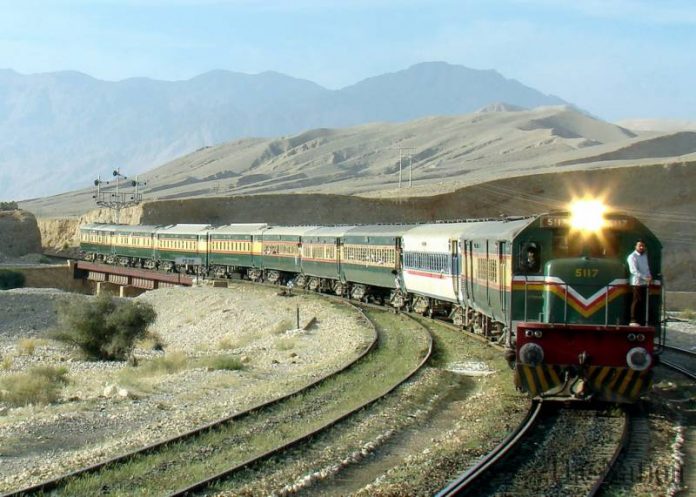The revenues of Pakistan Railways have reported to have increased to Rs.36,581.864 million in the year 2015-16 as against Rs.18,069.546 million in year 2012-13, registering a net gain of Rs.18,512.318 million in three years.
An official has reported to have said that the present government has been successful in bringing down the deficit of Pakistan Railways to Rs 26.993 billion by June 2016 from Rs. 30.504 billion in 2013.
On the contrary, the expenditures have risen from Rs. 48.535 billion in 2012-13 to Rs. 63.154 billion during 2015-16,he added. The increase in expenditure accounts for the increase in pay, pension and allowances as a result of budget announcements and cannot be curtailed.
Highlighting the government initiative to reduce the Pakistan Railways deficit, he said that the passenger sector earned Rs. 20,871.630 million during the year 2015-16 comparing to Rs.12,982.218 million in 2012-13, thus registering a growth Rs.7,889.412 million in three years.
The freight sector earned Rs. 10,585.903 million during the year 2015-16 compared to Rs. 1,673.661 million in year 2012-13, registering an increase of Rs. 8,912.242 (532.5 percent) in the past three years, he added.
He further commented that Pakistan Railways managed to load 243,794 wagons of different commodities during year 2015-2016, registering an increase of 26.24 percent as compared to wagons in year 2012-13.
The other measures included introduction of competitive freight rates to diversify traffic from road to rail, preference to block train loads, FDA based agreement with Maple Leaf Cement Factory and MOUs with Awan Trading Company and Chishtian Logistics for transportation of Coal and allocation of dedicated locomotives in freight pool, improved from 10 locomotives in 2012-13 to 65.
Furthermore, up-gradation of existing track on main corridor (ML-1) is being conducted under China-Pakistan Economic Corridor (CPEC) and an established Freight Transport Company is exploring new avenues for future freight traffic.
He said that Pakistan Railways also took considerable steps to improve the financial health of the department which included the introduction of different packages, concessions in different classes, rationalisation of fare structure to make it more competitive compared to the road sector.





Saad Rafique must have raised all fares.